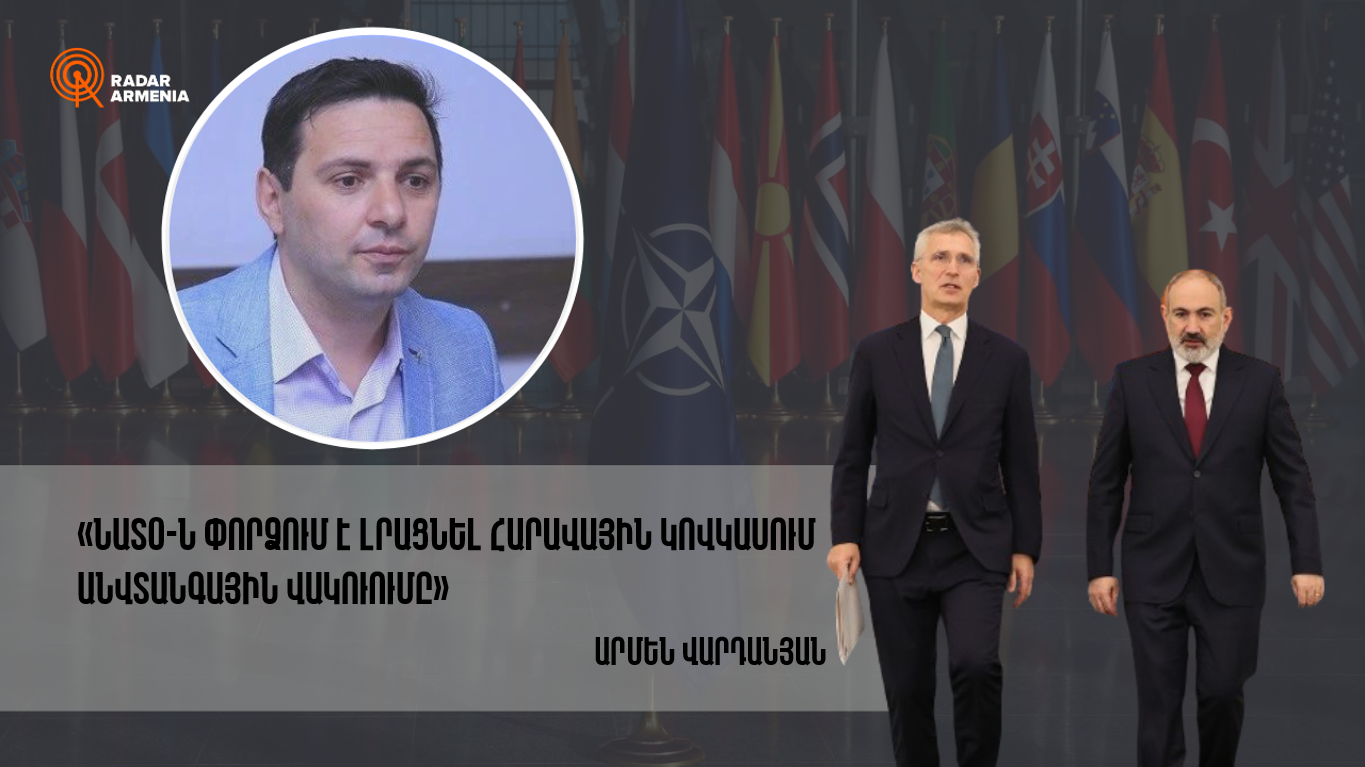Radar Armenia's interlocutor is political scientist Armen Vardanyan.
- The NATO Secretary General's visit to the region ends with a visit to Armenia. How do you explain this, and, in general, what is the significance of Stoltenberg's visit?
- I don't see anything special about ending the visit in Armenia. It is standard practice. It would help if you did not look for hidden or other messages here. As for NATO's role in this region, it is evident that a severe security vacuum has arisen in the area, and NATO is trying to fill it. It should be noted that Russia's negligence and inaction also caused this vacuum. Now, NATO is trying to deepen its relations with the three countries of the South Caucasus to strengthen its position in this region.
- Can Stoltenberg's visit to the region contribute to peace in the South Caucasus and curb Azerbaijan's ambitions?
As for Stoltenberg's visit and thereby restraining Azerbaijan's military actions, I do not think NATO has the leverage to suppress Azerbaijan. But some NATO member countries can do this on an individual level, in terms of arming Armenia, supplying high-quality weapons, and curbing Azerbaijan at diplomatic and other levels.
- Do you consider it realistic that Armenia will become a candidate for EU membership? What will be the price of becoming a candidate for EU membership?
- In the next few years, it is unrealistic for Armenia to become a candidate for EU membership. First, before that, it is necessary to leave the EAEU. At the moment, I do not see such signs, but, on the other hand, it is visible that the events in this region are developing very quickly and very often in an unpredictable direction. After a few years, it is entirely realistic that Armenia will become a candidate for EU membership. I do not have such a forecast for the next 2-3 years, but after that, Armenia will likely apply to become a candidate for EU membership, and the EU will shake the hand extended by Armenia.
Hayk Magoyan


















